- News
- Reviews
- Bikes
- Accessories
- Accessories - misc
- Computer mounts
- Bags
- Bar ends
- Bike bags & cases
- Bottle cages
- Bottles
- Cameras
- Car racks
- Child seats
- Computers
- Glasses
- GPS units
- Helmets
- Lights - front
- Lights - rear
- Lights - sets
- Locks
- Mirrors
- Mudguards
- Racks
- Pumps & CO2 inflators
- Puncture kits
- Reflectives
- Smart watches
- Stands and racks
- Trailers
- Clothing
- Components
- Bar tape & grips
- Bottom brackets
- Brake & gear cables
- Brake & STI levers
- Brake pads & spares
- Brakes
- Cassettes & freewheels
- Chains
- Chainsets & chainrings
- Derailleurs - front
- Derailleurs - rear
- Forks
- Gear levers & shifters
- Groupsets
- Handlebars & extensions
- Headsets
- Hubs
- Inner tubes
- Pedals
- Quick releases & skewers
- Saddles
- Seatposts
- Stems
- Wheels
- Tyres
- Health, fitness and nutrition
- Tools and workshop
- Miscellaneous
- Cross country mountain bikes
- Tubeless valves
- Buyers Guides
- Features
- Forum
- Recommends
- Podcast
review
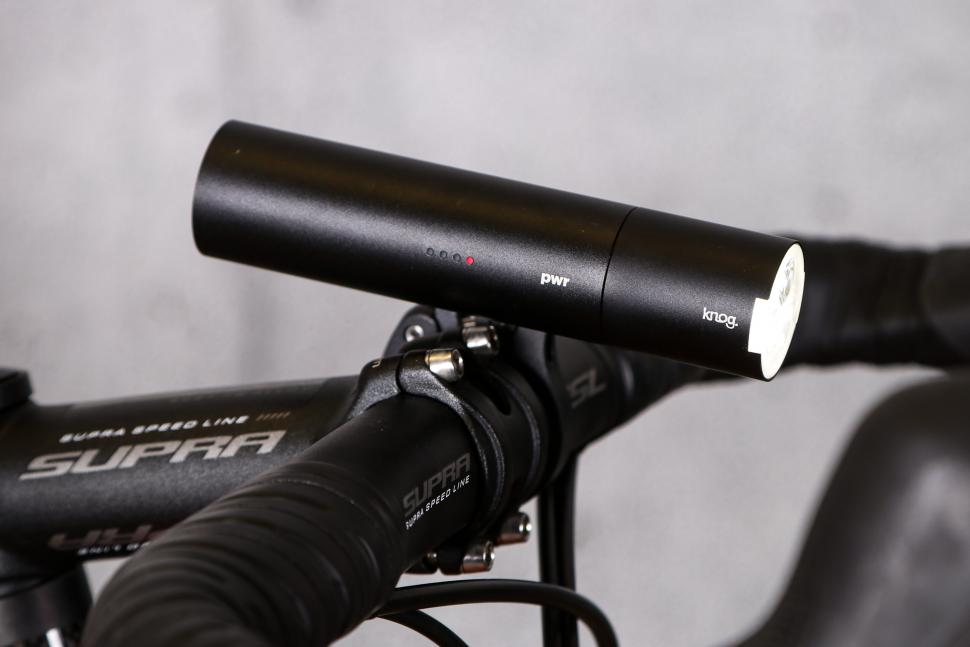 2021 Knog PWR Road Front Light - 700L.jpg
2021 Knog PWR Road Front Light - 700L.jpg£99.99
VERDICT:
Good front light and powerful enough for many, with some interesting features, but it's expensive
Improved lumen output
Battery can be used as a powerbank
Good build quality
Expensive
Weight:
161g
Contact:
At road.cc every product is thoroughly tested for as long as it takes to get a proper insight into how well it works. Our reviewers are experienced cyclists that we trust to be objective. While we strive to ensure that opinions expressed are backed up by facts, reviews are by their nature an informed opinion, not a definitive verdict. We don't intentionally try to break anything (except locks) but we do try to look for weak points in any design. The overall score is not just an average of the other scores: it reflects both a product's function and value – with value determined by how a product compares with items of similar spec, quality, and price.
What the road.cc scores meanGood scores are more common than bad, because fortunately good products are more common than bad.
- Exceptional
- Excellent
- Very Good
- Good
- Quite good
- Average
- Not so good
- Poor
- Bad
- Appalling
The Knog PWR Road 700L front light gets a 100-lumen power bump over its predecessor, making it a slightly stronger option in the face of a competitive market. If you want the flexibility Knog's PWR concept offers, plus a neat design, it's worth a look, though there are cheaper options that deliver as much – and more – power.
Back in 2019, Matt Lamy reviewed the original Knog PWR Road and considered it a very competent front light. Although he found the 600-lumen output a little underwhelming, its sleek design and build quality – plus the ability to switch light-heads and the option to use the battery as a powerbank – meant that it offered something a little different in a congested light market.
> Find your nearest dealer here
Fast forward a couple of years, and Knog has seemingly heard the criticism. The PWR Road is back, now with a punchier 700 lumens.
Aside from this, the story is much the same as before. Built on the principle of a separate battery unit and 'lighthead' that connect together to form the whole light, the PWR Road features a machined aluminium construction, with hardly any interruption to its sleek appearance.
There's a push-release catch that keep the two parts firmly attached, while on the side of the unit you get four red LED power indicator lights. Other than that, it's a very sleek looking barrel of a thing.
To switch the light on, off and cycle through the set modes, you twist the attached lighthead. You get the same six modes as previously, only now the lumen ratings are slightly bumped up thanks mainly to the more powerful lighthead.
These are now: Max (700lm/1.7 hours burn time); Mid (360lm/3.4 hours), Stamina (70lm/20 hours); Pulse (650lm/7 hours); Strobe Flash (275lm/10 hours); and Eco-Flash (70lm/165 hours).
Knog has also retained its nifty ModeMaker app compatibility, which enables you to customise your own mode if the six above just don't cut it. I think the set six provide enough flexibility for most roadies, though, if you're happy with the lumen output the PWR Road Lighthead supplies.
Eagle-eyed among you will note the corresponding shorter burn times, indicating that power output was clearly the priority here without compromising the dimensions or the weight too much. The road.cc Scales of Truth show an 8g weight increase, which could easily be down to the updated head unit – although the 161g weight that we recorded is significantly heavier than the seemingly optimistic claim of 125g on Knog's website.
It's worth noting that the lighthead is interchangeable with other, more powerful, lightheads if you really want the lumen output. But if you go for one of these, their larger size will make them stand proud of the supplied battery barrel and, inevitably, drain that battery much faster.
I'll also repeat Matt's endorsement of the side-on mount and overall packaging. The mount enables the light to fit at 90 degrees, and what this essentially means is that when you fit it to your handlebar (31.8mm and 22.2mm widths are catered for) it sits just to the side of the stem, yet allows the light itself to live directly above or below the stem itself, completely central. I have externally routed cables on my bike, and so I needed to do a little squeezing to get it to fit below the stem (out of my line of sight), but once there it proves a neat solution.
And the packaging is plastic-free and not over-printed, which is always a win in the eco-stakes.
Performance
Out on the road, the Knog PWR Road continues to be a decent-if-unspectacular performer. If you want to play the highest-lumens-wins game (for a comparable size unit) in 2021, look elsewhere. You can check out how lots of options compare in the beam test above.
The 100-lumen increase over the previous generation PWR Road is a nice boost, and will safely see most riders through dark urban streets and some dim country riding. If you want to be doing some fast riding (and therefore need a stronger beam to look further down the road), you may want to look at something like the Giant Recon HL1100 or any number of more highly powered alternatives currently on the market.
> Buyer’s Guide: The best 2021/22 front lights for cycling
The PWR Road does a solid job, though. The beam is slightly ovalised horizontally, giving decent peripheral vision, with a good spread of light onto the road. Used in its Max setting, you'll get just over 90 minutes of use (just shy of the claimed time) before it powers down.
In wet weather it's shown no sign of weakness or leakage, and the neat aluminium design is easy to clean (there aren't any hard-to-reach gaps in which grit and grime can live) when you get home, if you happen to have followed someone without mudguards on a group ride.
Value
For your money you are definitely getting a very well-made, well-designed product with some neat additional functionality (such as doubling as a power bank) to help justify the price.
However, when you look at the competition, there are much better value options out there: Giant's Recon HL1100 and Moon's Vortex Pro 1300 both offer more power for £20 less.
Lezyne's Macro Drive 1300XXL is a tenner less, and its Micro Drive Pro 800XL is £40 less.
I'm hardly scraping the surface here; you don't need to look far for a 'top' brand light that on paper can deliver more punch for less money.
Conclusion
Overall, I'm impressed with the Knog PWR Road's build quality, design and its ability to double as a powerbank. It's a high quality, interesting and capable front light for most road riders, with features that commend it, and the 100-lumen power bump is helpful. But in a congested market with literally dozens of options – many of them both cheaper and more powerful – you're paying over the odds for the privilege.
Verdict
Good front light and powerful enough for many, with some interesting features, but it's expensive
road.cc test report
Make and model: Knog PWR Road Front Light - 700L
Size tested: 700 Lumens
Tell us what the light is for, and who it's aimed at. What do the manufacturers say about it? How does that compare to your own feelings about it?
Knog says: "PWR Road is a modular bike light. But it's not JUST another bike light. Not only is it a high powered bike light, but simply take the product apart and you have much more. A lighthead and a PWR Bank to charge devices that is also the battery for all products in the PWR range."
Tell us some more about the technical aspects of the light?
Knog lists these features:
BATTERY INDICATOR
Hate it when you run out of battery with no warning? That'll never happen with PWR Road, with 4 built in battery indicator lights. Tap the bottom of the light to activate the battery indicator. 4 lights = fully charged, 2 lights = half charged etc.
EASY TO MOUNT & USE
This light can be mounted on top or below your handlebars, directly under your Garmin, or on your helmet. It comes with a side mount and shim that fits handlebars 22.2-31.8mm diameter. Once mounted, using PWR Road is a breeze. It's a simple twist-head operation to turn light on & off and to scroll through light modes.
CHARGE YOUR DEVICES
Press the red button to release the light head, and use the PWR bank to charge your phone, GoPro, cycle computer or other device. Charge your PWR Road using the included micro USB cable.
WIDE BEAM & CUSTOMISABLE MODES
PWR Road outputs a max 700 lumens, and can run for up to 195 hours on Eco Flash Mode. Its elliptical beam gives broader, bright road coverage. It comes with 6 pre-program d modes, and you can program the light to suit your needs with Modemaker. You can control brightness, adjust runtimes and add new light modes.
Dimensions
H: 128mm x W: 31mm x L:31mm
Weight
125 grams (claimed)
Lumens
Up to 700
Rate the light for quality of construction:
9/10
This is a lovely product, almost as good as it gets. Arguably, the button to release the lighthead is a little vague.
Rate the light for design and ease of use. How simple was the light to use?
8/10
No buttons, but after 20 seconds playing with it you soon get the hang of it. Remember, the lighthead doesn't twist off – you need to press the button and pull it.
Rate the light for the design and usability of the clamping system/s
9/10
Light, easy to install and orientates the light well.
Rate the light for waterproofing. How did it stand up to the elements?
9/10
No issues here, while the lighthead and battery unit fit together very snugly.
Rate the light for battery life. How long did it last? How long did it take to recharge?
7/10
Recharge times are as Matt found previously with the 600-lumen unit, a full recharge takes a shade over four hours. Battery life is compromised a little by the more powerful lighthead.
Rate the light for performance:
7/10
The lumen bump does improve the ability of the PWR Road to illuminate the path ahead. Still not outstanding next to similarly priced rivals though.
Rate the light for durability:
8/10
No real issues to note. Build quality is excellent; if the black aluminium body proves resilient to scratches through the whole winter, I'll be even more impressed.
Rate the light for weight:
7/10
Weight is acceptably light for most riders, I'd say – although Knog does seem optimistic in its own claims versus the road.cc Scales of Truth reality.
Rate the light for value:
4/10
You are definitely getting a very well-made, well-designed product for your money, with some neat additional functionality (such as doubling as a power bank) to help justify the price. But it's expensive compared with the competition.
Tell us how the light performed overall when used for its designed purpose
Very well.
Tell us what you particularly liked about the light
Improved lumen output, battery can be used as a power bank, good build quality.
Tell us what you particularly disliked about the light
Expensive, and doesn't really excel overall to justify it.
How does the price compare to that of similar products in the market, including ones recently tested on road.cc?
there are much better value options out there: Giant's Recon HL1100 and Moon's Vortex Pro 1300 both offer more power for £20 less, and Lezyne's Macro Drive 1300XXL is a tenner less, while its Micro Drive Pro 800XL is £40 less. You don't need to look far for a 'top' brand light that on paper can deliver more punch for less money.
Did you enjoy using the light? Yes
Would you consider buying the light? I'd probably be swayed by the Giant HL1100 or something else more powerful.
Would you recommend the light to a friend? I'd suggest they consider it.
Use this box to explain your overall score
There's plenty to commend the Knog PWR Road, and I like it – it's good! – it just isn't quite powerful or good enough value to really stand out in a highly competitive space to warrant a higher score.
About the tester
Age: 30
I usually ride: My best bike is:
I've been riding for: I ride: I would class myself as:
I regularly do the following types of riding:
Latest Comments
- BigSigh 1 hour 6 min ago
I am absolutely certain that it's not fair for trans-identifying males who went through male puberty to compete in female sports... and that should...
- thax1 1 hour 9 min ago
I was just excited to learn that Grundig were still a going concern, let alone making stuff for bikes now! What's next, Blaupunkt power meters?!
- chrisonabike 2 hours 20 min ago
Nothing to do with cycling, and currently unclear as to what exactly happened. But a child is dead, a tram line isn't running services and ...
- Destroyer666 1 hour 34 min ago
Sidelining the point here a little bit, but I was just looking at a Rapha video about Lachlan Morton's latest incredible venture of riding 648km in...
- wtjs 5 hours 12 min ago
Or, you can just look at them - it's pretty obvious when they're not going to work with a new chain. Then you can try them with old lengthened...
- NeilC575 5 hours 15 min ago
I bought 5 screw in storage hooks from local d.i.y store for £10. Does the same job 🤷♂️
- Bungle_52 8 hours 59 min ago
Well it looks like they've got a page now. It says they'll accept video evidence but I haven't been through the whole process. Looks very similar...
- eburtthebike 9 hours 8 min ago
Sorry, but the BBC is definitely tilting towards cycling after the Panorama debacle....
- mdavidford 9 hours 14 min ago
Unlikely. Not once he hears that it'll 'help Gore'.





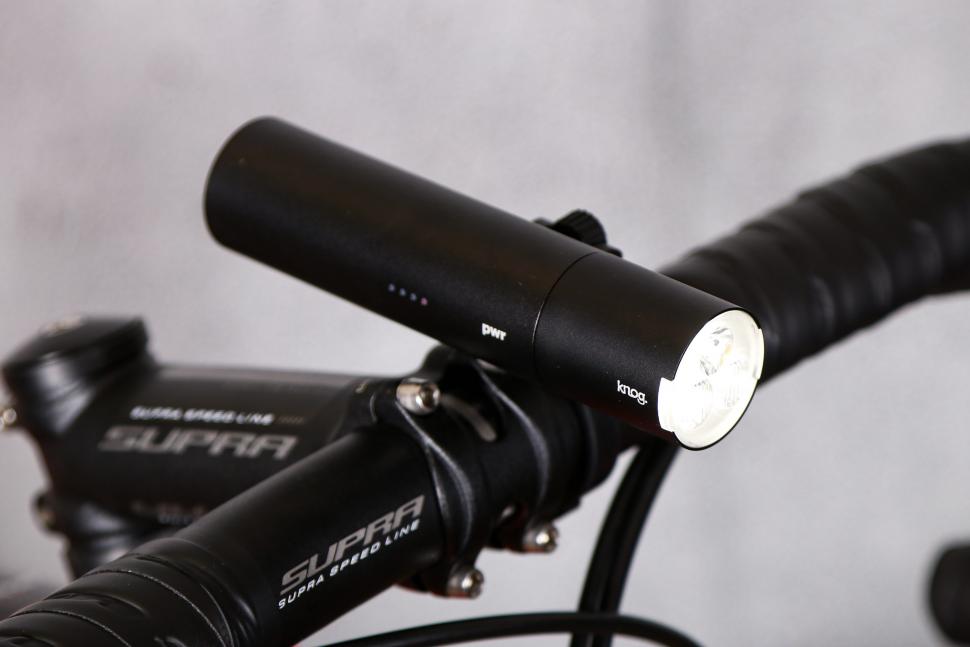
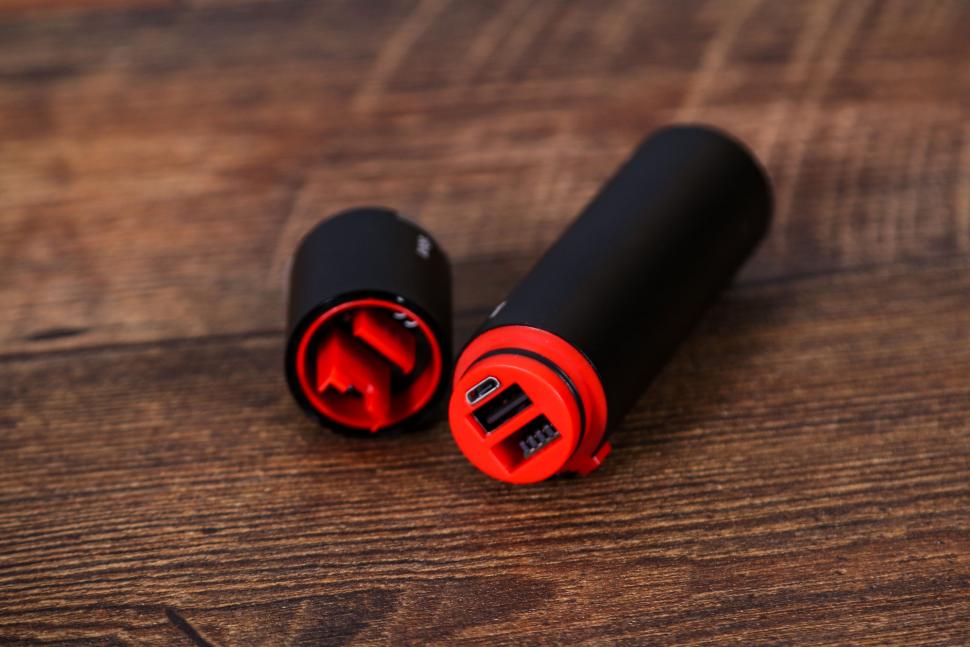
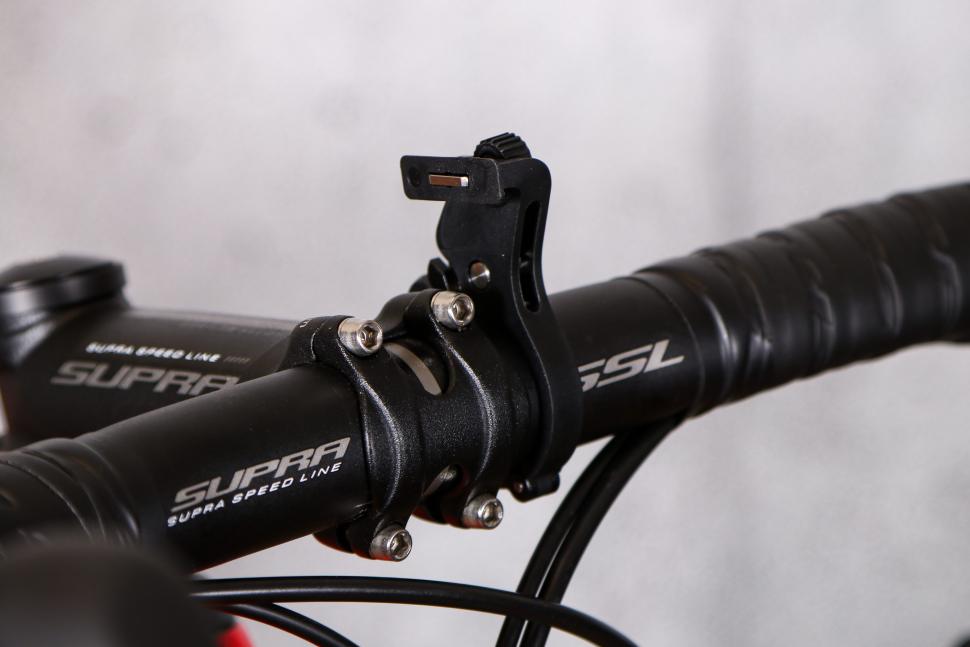
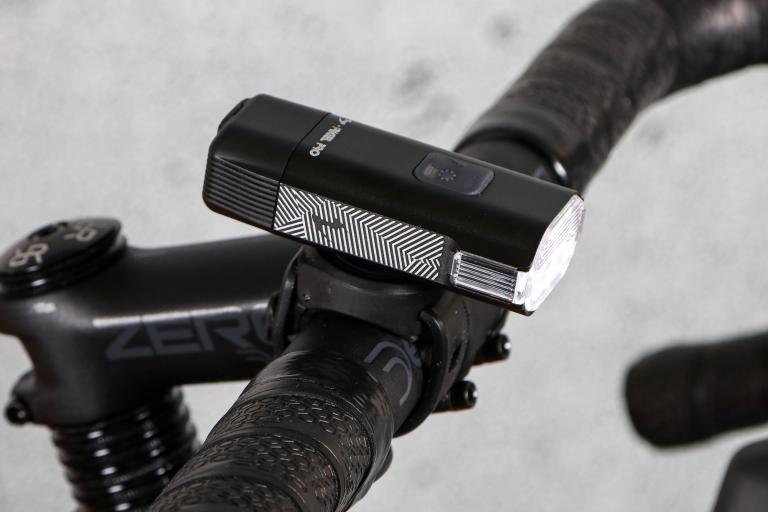
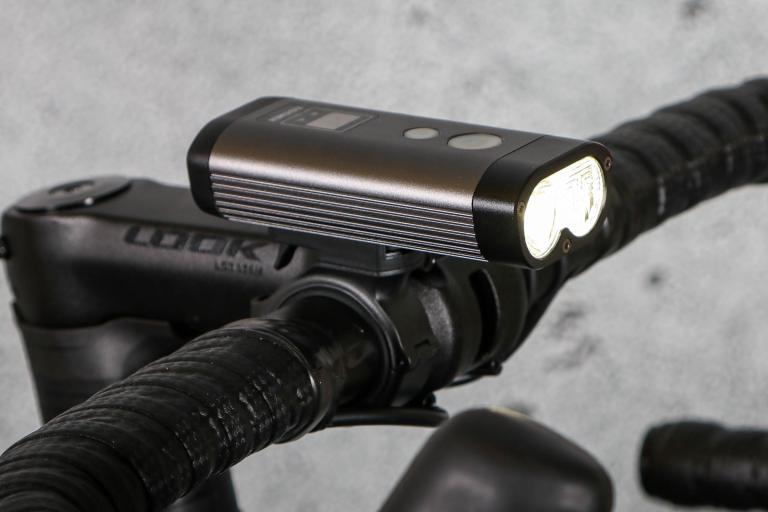
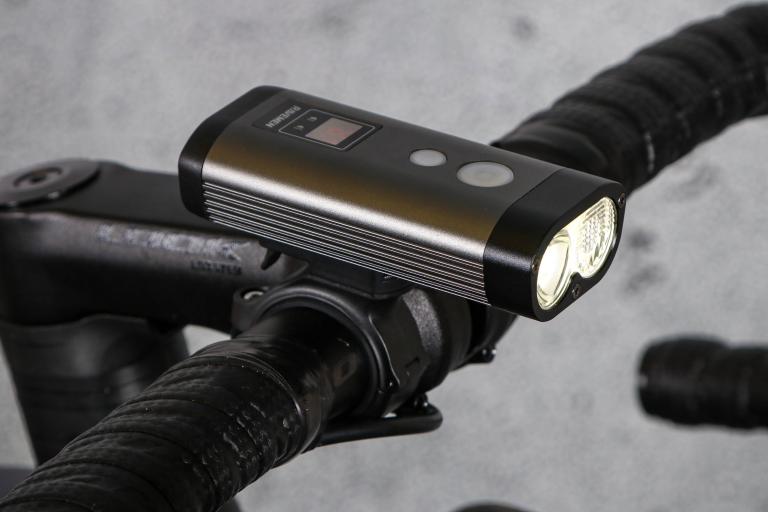
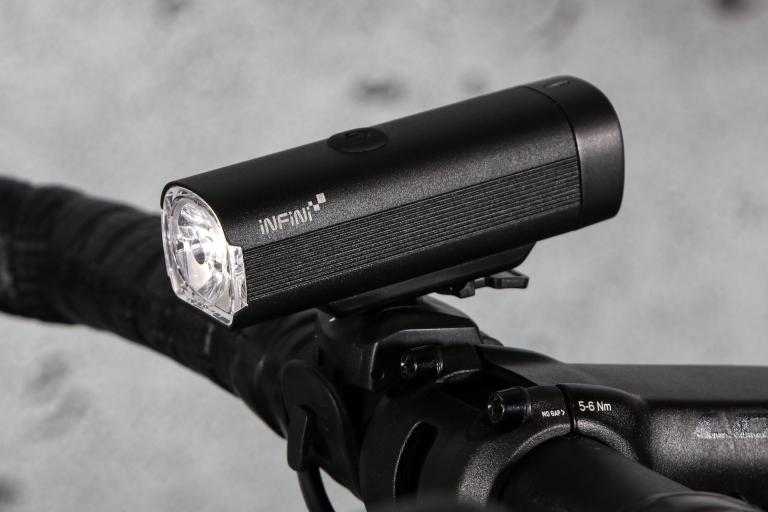
Add new comment
1 comments
Really wish road.cc (and others) would do a better job of clearly identifying what lights are for and evaluating them on that basis. In particular, currently the reviews give far too much weight to brute lumens outpout, which is not what most riders need most of the time.
Lights are for seeing and being seen, without blinding motorists, other cyclists, and pedestrians. Most people do most of their riding on roads/paths that are at least partially lit, and where courteousness around others should be a primary concern; that means we need a moderate light output with a shaped beam. Most of us aren't doing most of our riding on pitch black mountain trails, or on winding, unlit rural roads at 35 mph; that means we don't need 1500 lumens blasting light in every direction.
There's a lot more to say about this, but here's a start: Unless a light is clearly sold for specialized mountain/rural use, reviewers (and consumers) should demand a properly shaped beam. And, for road lights that include a higher output option for occasional backroad use, we should demand easy switching between high output and moderate/courteous output (for example, no scrolling through all the flash settings).
Please let's stop contributing to the lumens arms race that completely ignores the proper purpose and use of lights.